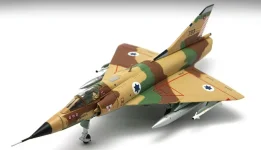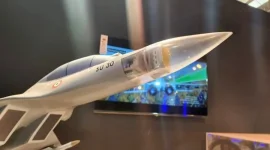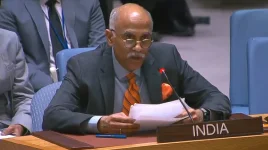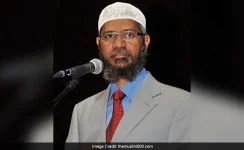- Views: 891
- Replies: 12
India's state-owned aerospace manufacturer, Hindustan Aeronautics Limited (HAL), faced sharp criticism from the parliamentary committee on public undertakings this past Thursday, March 27.
The committee delivered a critical report highlighting significant operational shortcomings at HAL, particularly concerning delays in the Tejas Light Combat Aircraft (LCA) program and the recent grounding of the Dhruv Advanced Light Helicopter (ALH) fleet.
These issues, the report suggests, stem from deep-seated inefficiencies in HAL that compromise India's defence preparedness.
The Tejas LCA program, a cornerstone of India's ambition for self-reliance in defence technology, has been significantly hampered by production delays
Intended to replace the Indian Air Force's (IAF) aging MiG-21 fleet, the Tejas achieved initial operational clearance in 2013 and final operational clearance in 2019. However, HAL has struggled to meet delivery schedules, leaving the IAF waiting for these crucial indigenous fighters.
The parliamentary committee identified inadequate planning and execution as primary reasons for the delays, warning that this lag impacts national security amidst regional geopolitical complexities. The IAF has orders placed for multiple variants, including 83 of the improved Tejas Mk1A, making timely delivery essential.
Adding to HAL's challenges is the grounding of its Dhruv ALH fleet. Following a crash incident on January 5, 2025, which raised questions about the platform's safety mechanisms, over 330 Dhruv helicopters were temporarily taken out of service for comprehensive safety evaluations.
These helicopters are vital assets operated by the Indian Army, Navy, Air Force, and Coast Guard for transport, reconnaissance, and utility roles. While HAL described the grounding as a necessary precaution, the event has inevitably affected confidence in the reliability of this widely used helicopter.
In its assessment, the parliamentary committee strongly criticised HAL for what it termed "systemic inefficiencies." The report stated, "HAL’s prolonged project timelines, impaired costs, and missed strategic opportunities have hindered its ability to meet the operational demands of the armed forces effectively."
The committee stressed that these failures not only pose risks to national defence but also undermine India's goals of becoming a significant player in the global defence manufacturing sector.
To address these persistent problems, the committee report urged HAL to implement substantial reforms. It specifically called for "rigorous adherence to pre-project processes, enhanced risk assessment mechanisms, and structured stakeholder engagements."
The report emphasized that adopting these improvements is crucial for HAL to regain competitiveness internationally and successfully contribute to the government's "Make in India" and "Atmanirbhar Bharat" initiatives in the defence sector.
The confluence of protracted delays with the Tejas program, the extensive grounding of the Dhruv fleet, and direct censure from Parliament marks a significant period of difficulty for HAL. As a key entity in India's defence industrial infrastructure, the company faces mounting pressure to resolve these operational and safety issues promptly to restore faith and effectively support the nation's defence forces.




